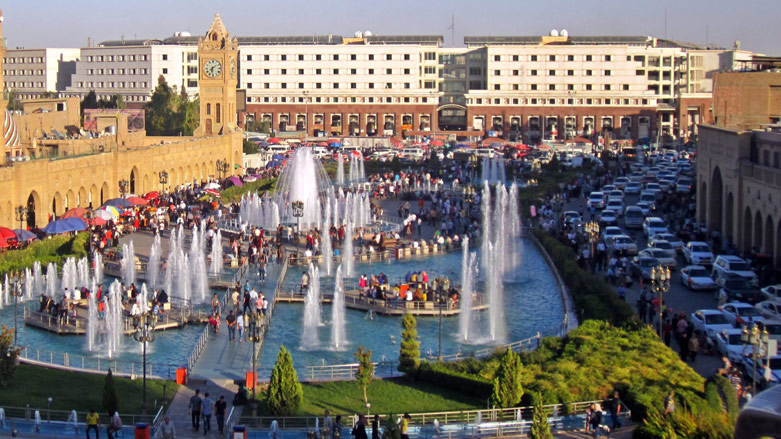Kurdistan temporarily exempts tourism sector from taxes to offset COVID-19 losses
The Kurdistan Region’s Board of Tourism announced on Wednesday that it has decided to temporarily exempt the tourism sector from paying taxes in an effort to offset some of the vast economic losses caused by the coronavirus pandemic.

ERBIL (Kurdistan 24) – The Kurdistan Region’s Board of Tourism announced on Wednesday that it has decided to temporarily exempt the tourism sector from paying taxes in an effort to offset some of the vast economic losses caused by the coronavirus pandemic.
"Tourism is 100 percent suspended in Kurdistan Region, but during last year’s Newroz, we received 243,000 tourists and on Ramadan Eid of last year we received 250,000 tourists," said board spokesperson Nader Rosti in a statement. "This year, everything has stopped and tourism worldwide has nearly ceased completely because of the coronavirus pandemic."
In response to calls about tax exemptions for hotels and other local businesses that make up the autonomous region's tourism sector, he announced, "The government has decided to exempt tourist facilities for the two months in which they received no tourists due to the regionwide curfew."
"After the danger of the coronavirus passes, the Tourism Board will meet and make necessary future decisions in accordance with the circumstances,” added Rosti.
In recent years, Eid holidays have led to an influx of visitors to the Kurdistan Region from the rest of Iraq and neighboring Iran in the hundreds of thousands who come to enjoy its cities or scenic countryside. This has become a major part of the region's tourism economy, now already in the midst of a crisis as the result of budget disputes with the federal government and the far-reaching effects of the coronavirus pandemic.
Read More: Kurdistan Region announces complete lockdown during Eid al-Fitr celebrations
Shukur Aziz, Deputy Chairman of the Hotels and Restaurants Associations in the Kurdistan Region, explained that the tax exemptions for only two months are not sufficient since the businesses have been forced to shut down for more than two months.
"There are also financial dues we must pay to the Department of Labor and Social Security for workers' insurance, in case some establishments were forced to lay off their workers due to the lockdown," added Aziz, pointing out that "authorities are asking us to continue to pay insurance even though the measures to curb the spread of the corona pandemic halted our sources of income.”
Aziz also mentioned that there are 784 hotels and other tourism accommodations in the Kurdistan Region: 384 in Erbil province, 240 in Sulaimani, and 160 in Duhok. Presently, he said, some 99 percent of them are shuttered, leaving only five-star hotels open with limited guests while others are being temporarily used as quarantine centers.
To contain the highly contagious disease, formally known as COVID-19, the Kurdistan Regional Government (KRG) has put into place a series of preventative measures, including restrictions on movement and shutting down all areas of large gatherings.
The Kurdistan Region Interior Ministry first imposed a curfew on March 13, restricting the movement of vehicles, shutting down schools and universities, and suspending work in government institutions.
In late April, the main WHO office in Iraq applauded the success of the KRG's efforts to combat the disease. “I want to congratulate the Kurdistan Region on their achievement in fighting the coronavirus,” said an official from the organization. “The rate of COVID-19 infections and fatalities in the region is very low compared to other Iraqi governorates.”
Read More: WHO congratulates Kurdistan Region on coronavirus response
The coronavirus has infected nearly 5 million people worldwide and killed more than 325,000, according to government-reported data compiled by Johns Hopkins University. The actual figures could be dramatically higher due to insufficient testing capabilities or underreporting.
Editing by John J. Catherine